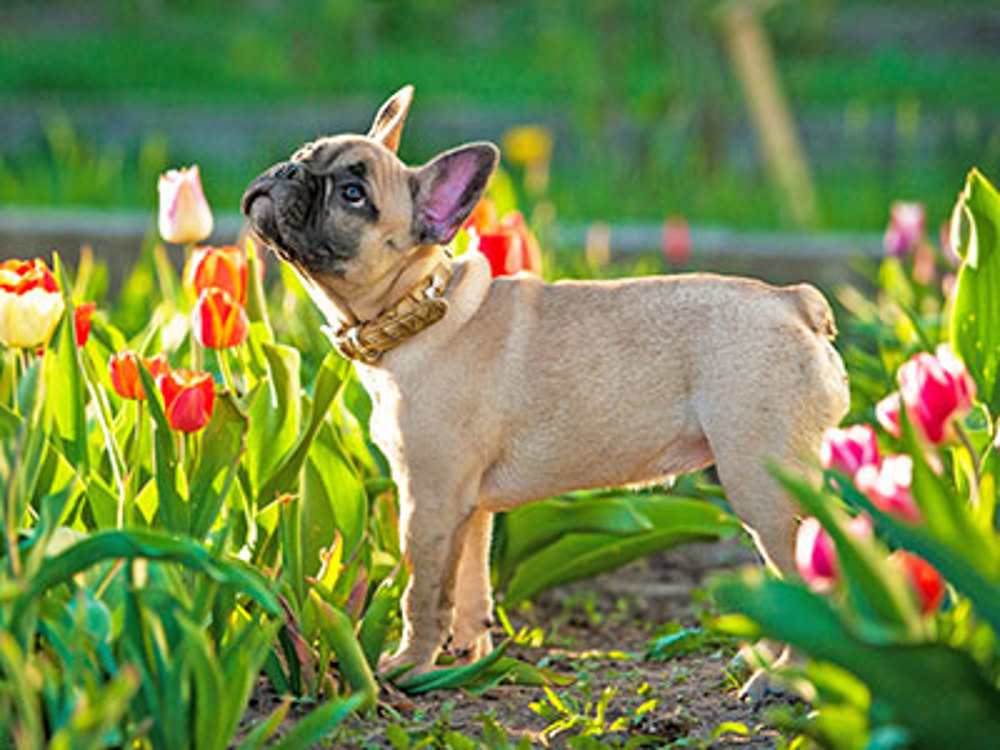
Why do some brachycephalic dogs have skin problems?
Chronic skin irritation and infection can be common in some extreme brachycephalic dogs, specifically those with excessive wrinkling and skin folds, usually found on the muzzle (the nasal fold), but also around the tail and the vulva in female dogs, in association with screw-tails.
Why do wrinkles and skin folds cause skin problems?
Deep skin folds cause rubbing and retention of moisture, and may lead to overgrowth of bacteria and yeast. These organisms feed on the skin secretions trapped in the fold, creating a perfect breeding ground for infections. These organisms also produce substances that cause further irritation to the skin. Local infections in these folds are common if they are not regularly cleaned. Infections may be painful, particularly if the skin becomes ulcerated.
Other reasons for skin problems
Fluids such as tears and saliva can catch in facial folds adding to these problems, and urine may exacerbate problems in vulvar folds in female dogs. In addition to skin fold problems, some brachycephalic dogs are predisposed to allergic skin disease, which may cause chronic itchiness and make the skin more prone to infections.
What are the signs my dog may have skin problems?
You may first notice an unpleasant smell from your dog’s skin folds. Skin folds can be deep, so signs of an infection or sore skin may be hidden away. On closer inspection, you may notice discharge containing pus and the skin may be puffy and red. Affected dogs may be very sore and therefore may not want to be touched. Affected areas may be itchy and dogs may scratch, causing further damage to the skin. In long-term cases, the skin may become thickened, and it may darken in colour.
What should I do if my dog shows signs of skin problems?
If an infection is present you should take your dog to the vet for treatment. Your vet will examine your dog’s skin and collect a sample from the area to be tested for bacteria or fungi. Most cases will be treated with a topical antibiotic and/or antibiotic medications. For dogs that are affected by recurrent skin fold infections, vets may recommend surgical removal of the affected fold to avoid chronic pain and infection.
How to prevent skin problems
Owners of all brachycephalic dogs with skin folds should regularly check their dog’s folds and wrinkles for signs of infection and irritation. Owners should clean the dog’s wrinkles every day to remove dirt, debris, moisture and food particles. Owners should also try to keep their dog’s wrinkles dry not only after bathing but also drinking.
Find out more about brachycephalic health and welfare
Article author
This article was written by Dr. Rowena Packer from the Royal Veterinary College who has given The Kennel Club kind permission to replicate it. Dr. Rowena Packer is a Research Fellow at the Royal Veterinary College. Her research interests include many areas of canine inherited disease including brachycephalic health and canine epilepsy.
Think your dog may be affected?
If you're worried about your dog's health, always contact your vet immediately!
We're not a veterinary organisation and so we can't give veterinary advice, but if you're worried about any of the issues raised in this article, please contact your local vet practice for further information.
Find a vet near you
If you're looking for a vet practice near you why not visit the Royal College of Veterinary Surgeons' Find a vet page.
